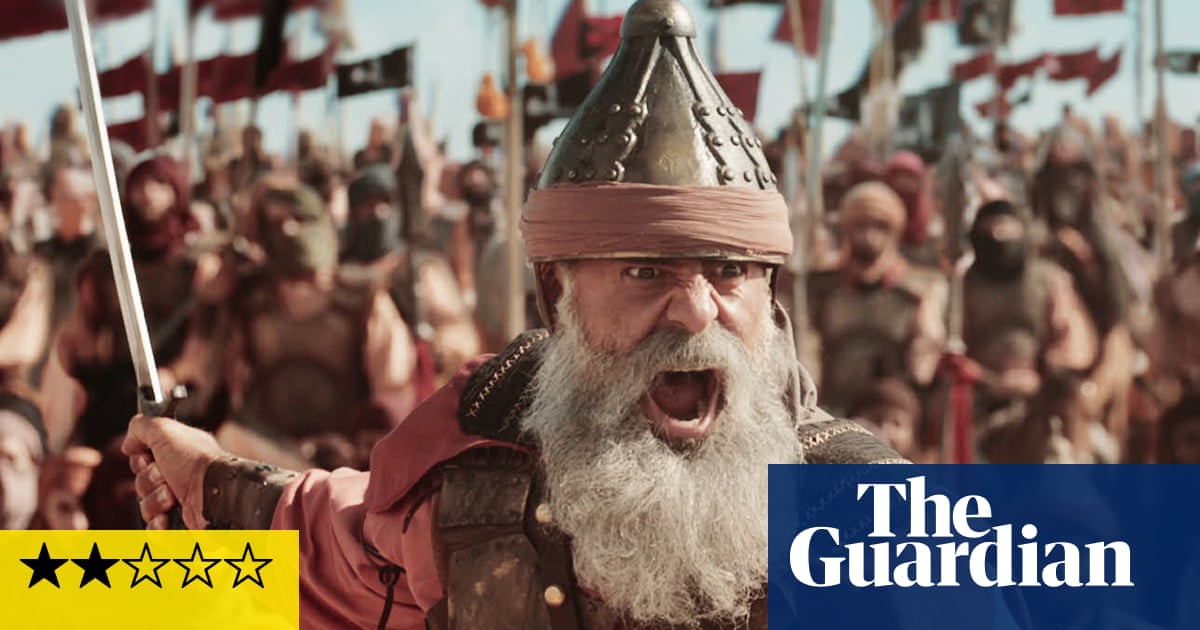
Show caption Closer to Mile End than Medina … The Lady of Heaven. Film The Lady of Heaven review – ambitious religious epic about Muhammad’s daughter This wayward, occasionally handsome account of the story of Fatima is more interesting on paper than in practice Phil Hoad @phlode Mon 30 May 2022 13.00 BST Share on Facebook
Share on Twitter
Share via Email
This British-made epic earns a significant accolade: it is the first film to put the “face” of the prophet Muhammad on screen. No single actor is credited with playing him, or any of the other holy figures in his entourage. And, as a nervous initial disclaimer points out, their faces, often shown in dazzling sunbursts, are computer-generated. Presumably, this is enough to placate Islam’s prohibition on visual representation of the prophet, but this is a Shia-aligned film that is evidently a little more lenient on the issue.
While claiming, as per the title, to be about Muhammad’s daughter Fatimah, this is largely focusing on his cousin and successor Ali. Director Eli King and writer Sheikh al-Habib attempt to give the Islam origin story a contemporary parallel: it has a framing sequence in which Laith (Gabriel Cartade), a young boy from Mosul, is orphaned when his mother is executed by Islamic State soldiers for teaching him a blasphemous song. Laith is adopted by a soldier from Baghdad, and the serviceman’s mother comforts the youngster by telling him the tale of the saintly Fatimah, whose example of strength she promises will keep him going in dark times.
The strange thing is that the film, until its closing stretch, hardly features Fatimah – who in any case is the only Islamic luminary whose face is never shown, which along with an embarrassingly plummy vocal performance, hobbles our attachment to her. Instead, The Lady of Heaven gives a stilted walkthrough of the nascent outsider religion that is more drawn to her eventual husband Ali, a martial badass with vehement anime eyes. Only after Muhammad’s death, with the depiction of the emerging tyranny of his father-in-law Abu Bakr (Ray Fearon), does this flat-footed telling start to chime with present-day religious intolerance.
The production values are decent, with impressive mud-brick sets and the kohl-eyed, vibrant-cloaked pagan rabble contrasting nicely with the austere Muslim camp. But with some half-baked performances, and the odd tinge of cockney creeping in, it feels a bit too apparent that the cast hail from closer to Mile End than Medina. The Lady of Heaven has precious little of the poetic flair of Muhammad: Messenger of God, Majid Majidi’s 2015 treatment of the prophet’s early years, or indeed the uncanny rigidity of 1977’s The Messenger, often shot from the prophet’s first-person perspective. And for a film that aims to promote religious diversity and freedom of thought, its metronomic alternation between time frames, narrative slavishness and laughable coda have a suffocating sense of orthodoxy.
• The Lady of Heaven is released in cinemas on 3 June.







